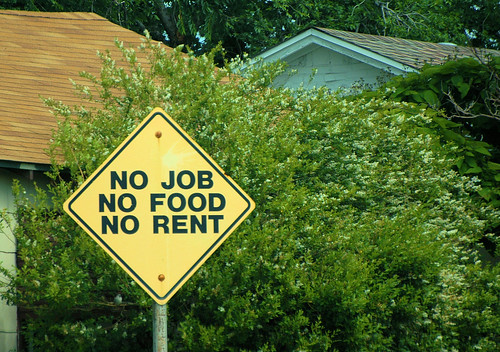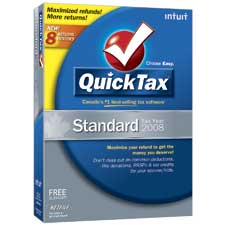Let’s face it: Everyday purchases add up. And whether you don’t make a lot of money, or make a significant income and would simply rather save more of it, the following advice should apply to almost everyone, everywhere almost universally (but most definitely to U.S. and Canadian citizens).
From buying a car, to saving money on gasoline, laundry, and clothes, you should be able to find it all here.
House1. Make monthly prepayments to your mortgage and save months or even years worth of interest off of your mortgage. For a calculation of the amount of money you will save on your house, check out the Mortgage payoff calculator at Dinkytown.
2. If possible, buy your home close to your work (preferably within walking distance). This will cause your insurance premiums to drop significantly, and your gas consumption will plummet as well.
3. Rent out any unused rooms (or the basement) to bring in more money to pay towards the mortgage. This will shave years of interest off the life of your mortgage.
Home Insurance1. Ask your insurance agent about bundling your home insurance with your car insurance (and life insurance, if needed).
2. Ask your insurance agent if installing a security/alarm system in your home will decrease your premiums and by how much.
Furniture1. Go to moving sales, rather than garage sales. Garage sales often sell belongings that people no longer want. In contrast, moving sales involve stuff people may still want, but may not be able to move. You can often find fabulous pieces of furniture for a steal at these events. One good way of locating moving sales is reading the newspaper classifieds.
Utilities1. Unplug all unused appliances when they are not in use. Studies show that some electrical devices use up just as much energy when they are simply plugged into an electrical outlet as they would when turned on.
2. Wash your hair less often. Not only will it save you money, but it will also keep your hair fuller and less dried out.
Internet1. If you only use the internet for an hour per day or less, consider buying a Starbucks card for a nominal amount (like $5); you’ll reap the benefits of free internet usage at any Starbucks for up to 2 hours per day just by using the PIN on the back of the card.
Phone1. Download
Skype. It’s a program that uses your internet to call any phone number in the world, at pennies per minute. What’s more, if the person you are “calling” also has Skype, simply call their computer and speak (and even see them on webcam) for absolutely FREE. Skype even has a new feature called your “skype-to-go” number, which allows you to call anyone in the world from your cell phone for the same rates offered by the computer version of the program.
Car1. When negotiating the price of a car at a car dealership, beware of hidden sales costs. Be sure to ask for the “out-the-door” price of the car, meaning the price you will pay after all taxes, fees, and closing costs.
Car Insurance1. Ask your insurance agent about bundling your home insurance with your car insurance (and life insurance, if needed).
2. As Suze Orman explains in her “Money Book for the Young, Broke, and Fabulous”, Consider increasing your deductible, to get a reduction in your monthly premiums. Chances are you’re not going to have an accident (unless you are a bad driver). Instead place the amount you save each month by increasing your deductible into a separate savings account, and you can use that if you end up having an accident.
Gasoline1. Tire Pressure. Check that your tire pressure is the same as the number indicated on the inside panel of your car door.
2. Unload extra weight. If your car is carrying unnecessary baggage, unload it to increase Fuel efficiency by up to 20%.
3. Avoid stop-and-go traffic whenever possible.
Clothes1. When shopping online, checkout the online coupon codes at Retailmenot.com. This site provides a list of user-submitted coupon codes (with expiry dates, and success rates) for stores like Chapters Indigo Bookstores and Victoria’s secret.
Laundry1. Wash your clothes in cold water (even if they’re whites).
2. Wash your delicates by hand.
3. Use 1/2-cup of lemon juice instead of bleach in the wash. Not only is it gentler on your clothes and your wallet, but it’s better for the environment!
4. Hang your clothes to dry. Not only will it save on electricity, but it will have less wrinkles in the end!
Food (Groceries)1. Plan your shopping lists in advance, making sure to examine supermarket flyers before going to the store.
2. Take turns with a friend, relative, or neighbour, cooking up large amounts of a favourite food (think stew). Then freeze the leftovers. Not only will it save you money, but a lot of planning and shopping as well.
3. If you have a garden, plant some vegetable seeds and grow (and perhaps even sell) your own vegetables. Not only will your veggies be cheaper than the supermarket variety, but they’ll also be fresher!
4. If you’re a student, go to all of the educational and networking events put on by your school. There will often be pizza, wraps and other free foods. Not the healthiest, but it will leave money in your pockets for other things!
Makeup and Personal Items1. Make your own cosmetic products. For incredible recipes for cleansers, toners, and masks, check out
Homemade Beauty Recipes.
2. If you live in Canada, take advantage of Shoppers’ Drug Mart’s 20x the points events. At these events, the points you accumulate add up to a monetary worth of about 40% of the total amount of money spent.
Gifts1. Buy gift bags at the dollar store for as little as 3/$1. Some are really beautiful, and you’d never know they came from the dollar store.
2. Consider buying gift cards from Restaurant.com. You can save up to 60% on restaurant gift cards and certificates by doing so (must be a U.S. Resident).
Movies1. Stream movies live at Project Free TV.
Music1. Sign up at swagbucks.com and accumulate swagbucks (special points) that you can redeem towards free music (in the form of iTune tracks.
Eating In1. If you order from Pizza Hut or Pizza Pizza, consider calling and complaining about the food. They will often send you a second free pizza at no charge.
Dining Out1. Sign up on Restaurant.com to save up to 60% on gift cards and gift certificates at popular restaurants in your area (works only for U.S. Residents).
Credit Card Interest1. Get your interest rate lowered. Do what you have to do to reduce your credit card balance to $0 (or near zero). Then call and tell them you want to close your account. This will inevitably lead them to ask why, and do whatever they can to make you stay. 2. At that point, request a rate decrease. You should be able to get it to near 10% if you are a good client, if not less.
3. If you never maintain a balance on your credit cards, request a card with rewards, such as cash back. Most cards offer 1 or 2% cash back.
Books1. The most obvious is: GET YOUR BOOKS AT THE LIBRARY! The modern day library has all of the latest books, DVDs, CDs and magazines. My local library has several seasons of Entourage, and Sex in the City! Why pay when you can get it free?
2. Trade your books with a friend. If you’re on facebook, check out the Virtual Bookshelf application, which allows you to list books you’ve Read, You’re Currently Reading, and those you Want to Read. Your friends list can then view those and comment/contact you about trading and borrowing them!
Courseware1. Whether you are simply interested in a certain field, or preparing educational materials for your children or clients, be sure to check out MIT’s open courseware page. With hundreds of courses worth of lecture notes and media, it should be everyone’s first stop shop. From aeronautics and astronautics to Writing and Humanistic Studies, their website has it all.
2. If you have an ipod or iPhone, you can download many free podcasts off of iTunes, including viewable lecture notes from schools such as Stanford and Harvard!
Vacations and Car Rentals1. Check out Priceline.com to save up to 60%. It allows you to bid on vacation packages, flights, hotels and car rentals, by selecting a star rating for your search or a type of rental car, and a location. The downside is you can’t pick a specific hotel or a specific car. On my most recent trip to Hawai’i, I only paid $1700 for a 6 night stay in a 4-star hotel on the coast of Maui. The regular price was over $3500.






















 Yes, I'm in law school. No, it's not
Yes, I'm in law school. No, it's not 

